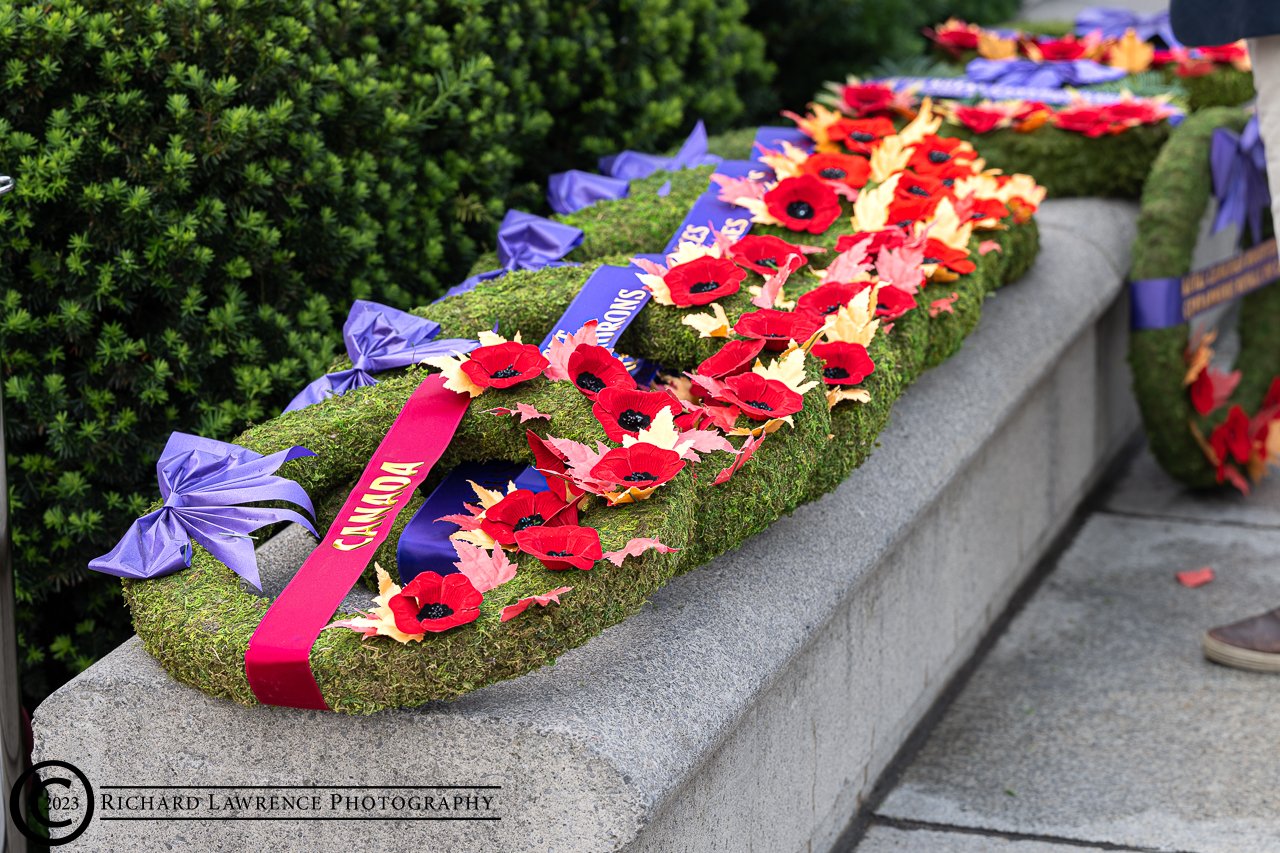By Richard Lawrence
The 107th ceremony of remembrance for the Royal Newfoundland Regiment (RNR) and the Battle of Beaumont-Hamel was held on July 1st, 2023, at the National War Memorial in Ottawa, on a somewhat overcast and smoky morning that threatened rain. Just as the ceremony completed, however, the sun came out for about 10 minutes so everyone could get pictures at the National War Memorial proving that God loves the Newfoundlanders.
To see all of the pictures, follow this link:
https://www.richardlawrencephotography.ca/rlpgalleries/2023/bhamel107/
Any requests for pictures should be sent to Royal Newfoundland Regiment Advisory Council at rnradvisorycouncil@gmail.com to the attention of Col. (ret’d) Gregory Burt.
The 1st of July is a day of remembrance first in Newfoundland and a day to celebrate Canada second. In the First World War, the Dominion of Newfoundland supplied 8,707 men to the three Dominion services including the Royal Newfoundland Regiment, the Royal Newfoundland Naval Reserve, and the Newfoundland Forestry Corps. As well 3,296 men volunteered for the Canadian Expeditionary Force, 21 were known to be in the Royal Flying Corp/Royal Air Force, and 175 women served overseas in nursing and aid stations. In all, 36% of men of military age (19-35) went to war.
Beaumont-Hamel is significant in that the men of the Royal Newfoundland Regiment (RNR) went “over the top” on this day at about 0915 hrs in 1916 and 30 minutes later, only remnants remained. They left from a support trench (St. John’s Trench) which was 200 metres behind the jump off point because the dead and wounded from previous waves clogged the way to the front. After this, it was another 500 metres to the enemy through a no-man’s land criss-crossed with enemy machine gun fire. “It was a magnificent display of trained and disciplined valour and its assault only failed of success because dead men can advance no further.” said LGen Sir Aylmer Gould Hunter-Weston.
While figures vary, the RNR website lists: Killed In Action – 14 officers and 219 other ranks, wounded – 12 officers and 374 other ranks and 91 missing. Out of 721 who were committed to the battle only 68 were able to answer the roll call the next morning (85% casualties). Every officer who went into battle was either killed or wounded. Some of the dead were killed trying to crawl back to their own lines from no-man’s land as they had been made to wear metal triangles on their backs, so command could monitor their forward progress. As they crawled back, the sun reflected off the metal making them easy targets for enemy snipers and many were killed. It would be two weeks before the people in Newfoundland heard of the disaster.
The ceremony was hosted by the Royal Newfoundland Regiment Advisory Council and MC’d by Col (ret’d) Gregory Burt who started the ceremony by welcoming everyone and then retracing Newfoundland’s history and sacrifice during “The Great War”. Of special note were the facts that 14 sets of brothers perished in the attempt including four members of the Ayre family of St. John’s.
The Act of Remembrance was spoken by Mr. Bill Black and Col. Burt and the Commitment to Remember was done by Miss Kathleen Mercer in both official languages. Miss Mercer has a rich heritage of military service with one great-great-grandfather in the Royal Newfoundland Regiment, the other in the Merchant Navy in WWII. Her great-grandfather served in the Royal Navy during WWII and her brother currently attends Royal Military College. The laying of wreaths was preceded by a prayer delivered by Padre Commander Jennifer Gosse who also had a great-uncle killed at Beaumont-Hamel.
Seventeen wreaths were laid in total with the first by Senator Rebecca Patterson for Canada, and then Senator Mohamed-Iqbal Ravalia on behalf of the People of Newfoundland and Labrador. The star of the show, however, was Ms. Joan Fisher who laid the wreath on behalf of the Atlantic Voices Choir along with the choir mascot, a seven year old Newfoundland dog named “Margaree”. Margaree managed a small bow to the wreath during the moment of reflection after the laying.
To end the ceremony, the poem “Only One Tree” was read by Miss Claire Kenny whose head barely reached above the podium. But she persevered and read the poem without fear or error, much better than some of the adults have done in past years. The Atlantic Voices Choir concluded the ceremony by singing all four verses of “Ode to Newfoundland” and “God Save the King”.
While Newfoundland would not become part of Canada until 1949, as part of Canada now, it is important to remember the sacrifices made on behalf of the allies of this small part of the British Empire. They mourn Newfoundland in the morning and celebrate Canada in the afternoon.


